Without going into the reasons for life logging yet, I will first discuss my methods. This is to give you an idea of what it means to develop and use some systems to inspect your life for greater insight, reflection and self control.
This is an overview and I'd like to go into detail in each one of my strategies eventually. I'll also explore the thing that motivates me to do this, and the various reasons for and against it, and why it comes out on top for me.
Digital
Arguably the most immediately fun and cool self tracking and management is in the digital sphere. For me a lot of this centres around Android gear. I use an Android phone and an Android watch. I'm currently using a Nexus 6 phone and my watch is a Polar M600.
Phone Apps
This is a screenshot of my main home screen
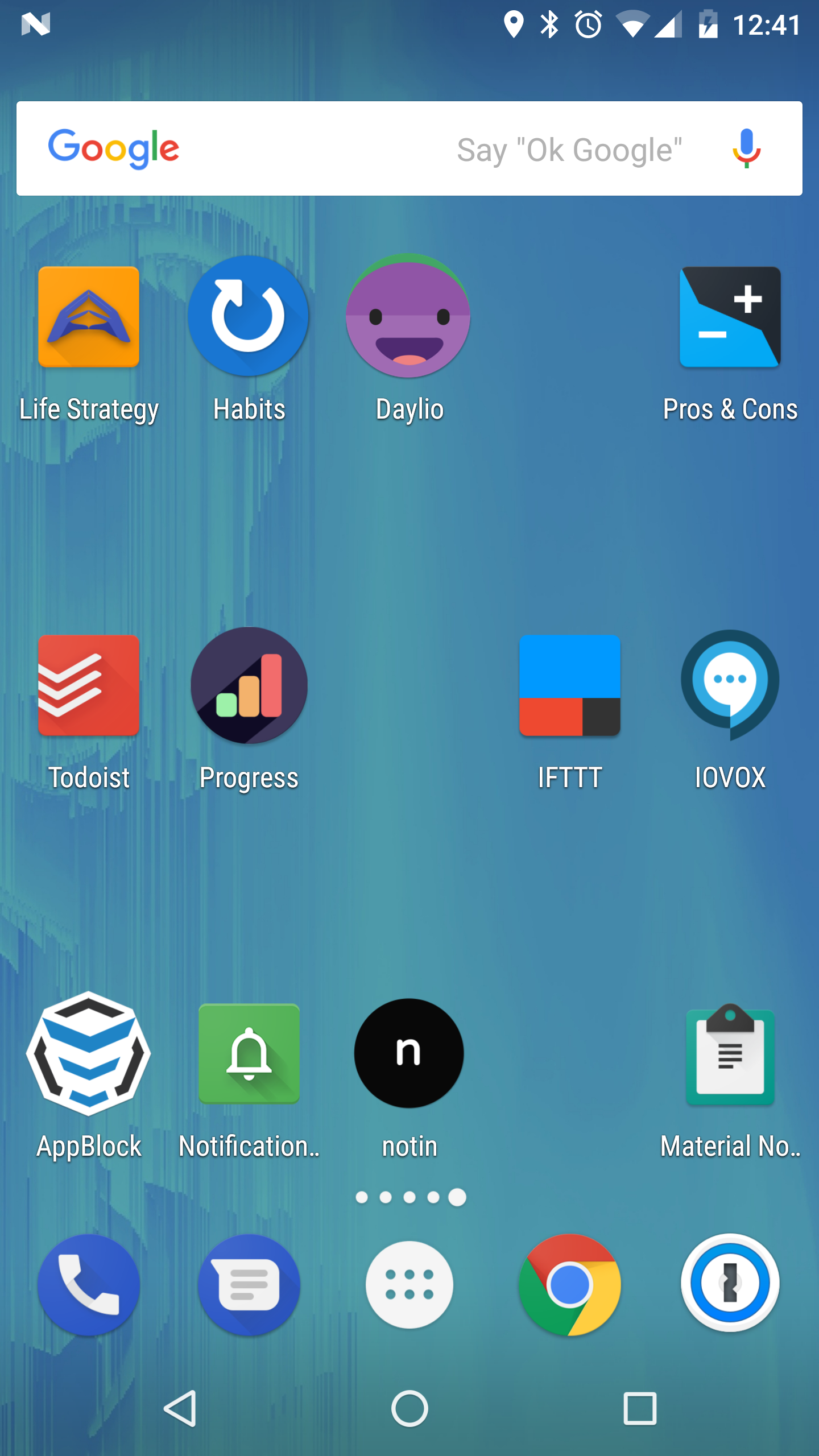
These are all apps I actively use and which contribute to my self tracking, reflection and management. These are the best I've found so far, and I've tried a lot, so I'm implicitly recommending them all.
Pretty much each of them deserve a full post to be written about them so for the moment here's an overview, in order of left to right, top to bottom.
Top row
- Life Strategy: kind of like a focused notebook to write and reflect on who you are, what you stand for, what you're good and bad at, what challenges and opportunities there are in your life, and what your goals are, what habits you need for that and lessons learned. Sounds boring but it's actually useful.
- Habits: define and self report of your daily progress in keeping to your habits. Has a lot of useful widgets for the home screen and is even open source.
- Daylio: self reporting your overall daily mood, including an optional brief diary entry on what you did or felt, and / or choose icons to represent that instead.
- Pros & Cons: simple tool to write out arguments for an against something, assign them values and tease out what you really think about something
Middle row
- Todoist: popular todo list app. I use this to keep track of things I'm doing with other people using the app, so it's explicitly and only for collaboration, I use other apps for self only todo lists.
- Progress: track progress on projects. I only use this for very long terms projects as I use analog means for immediate task (more on that later)
- IFTTT: If This Then That, a handy way to trigger events using other events not generally used as triggers. For example, when you get an email from someone in particular, set a reminder to look at it, or different integrations with Google Assistant.
- IOVOX: add mark up to phone calls, really handy for remembering to follow up calls when out and about. I haven't tried it yet (I have no real reason to) but you can also share this with people in a group.
Bottom row
- AppBlock: stop certain apps from being able to be opened on a definable schedule. A way to make sure you keep focused by for example blocking messaging apps while working.
- Notification manager: squash and categorise app notifications. If you get a lot of notifications that annoy or distract you, and there's no good way to manage them in the app, and you still want to eventually respond to the notification, then this is for you
- notin: kind of the opposite, make a note as a notification. Simple but useful
- Material notes: a nice looking note and list taking app that has beautiful home screen widget integration
Very bottom
- 1Password: a pro password manager. I pay for it but it's worth it. Secure and with good apps across platforms.
Android Watch
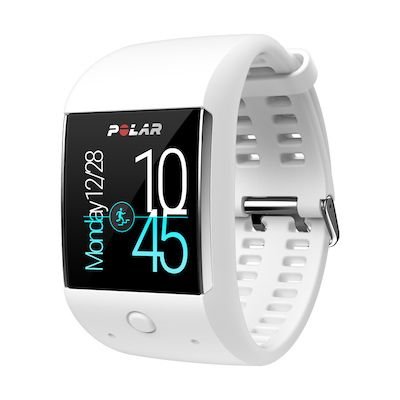
The reason I got the watch is because it runs Android Wear 2.0 (just this week rebranded to Wear OS by Google) and has a lot sensors, including GPS. All of this means you can leave your phone at home when you go for runs or walks, as you can even connect a set of bluetooth headphones to the watch and listen to podcasts or music.
Fitness
For me this is main one. Polar have their own activity tracking app which is quite good. But there are a few good apps for this too, such as Google Fit and the Underarmor group of apps. You can generally share information between each app no problem so the one you actually use should just have a good front end interface, and I think Polar's own app is the best as it gives nice detailed feedback, as well as human readable feedback.
Examples
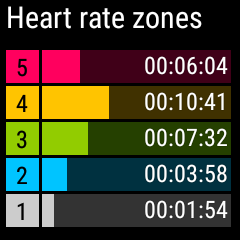
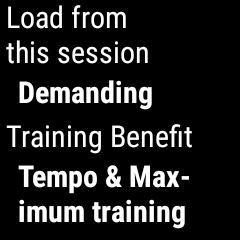
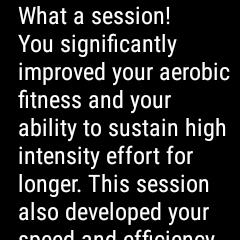
Notifications
I turn off all sound and vibrate notification on my phone when I'm wearing the watch (which is most of the time) so the watch just buzzes on my wrist. I like this because if I'm cooking or talking to someone I can glance at my watch no matter where my phone is.
It's also good for reminders and alarms, because you can't really ignore something buzzing on your wrist as easily as your phone!
Sleep tracking
I'm still not sure I like the watch for this. I've found that wearing it all day and all night to be too much. I'm thinking of getting a different device to track sleep, so while some people like this I prefer being able to completely disconnect and take everything off at night.
And many more
I'll do another post some other time about more watch features and why Wear OS is really quite good once you've bitten the bullet and bought the hardware.
Analog
It's not all about the gadgets! In fact digital reliance and even addiction is an increasing problem in our societies. Another problem is all the companies who want data about you. I'm not talking about your data, such as your photos and so on, I'm talking about detailed biometric data, how we use devices and tracking our every move.
This poses an ethical and practical tension between life loggers and big data companies. I'm not going to go into it right here though, except to say I'm aware of it and I always try to opt for solutions which silo data locally, and take data actually off digital devices when possible.
Here are some examples:
Self management whiteboard
Here's a very very blurred image of my whiteboard

I need to do that to protect my privacy but you get the idea. I have 4 colours of post-it notes that I use, in order of increasing importance or urgency: yellow, green, orange, and pink.
These are arranged on semi-flexible swimlanes, kind of like Kanban but without the same strictness.
This is really my main area of personal management. I used to use various digital lists, calendars and so on but now I have very few digital versions and this is my main tool of organisation. If I need to schedule going to the doctor, it goes here. When I was planning on writing this article, the idea went here first on a post-it. I have lots of hobbies and personal projects too, and the tasks for those are split up. When I get an idea for a new app or project, I just note it down here.
I think the main benefit is being able to look at a summary of nearly everything I'm doing in one physical place. It matters that it's not on a screen. There's no mode switching, no potential data loss, no running out of battery or notifications popping up on the screen. It's simple and clean.
I still use digital todo lists and calendars but they are generally for collaboration with others, for small daily stuff like grocery lists, or notes when I'm out and about that will make it to the whiteboard when I get home.
Books and notebooks

I love books. They are so fundamental to learning and in the digital age they become both more and less important as their role changes. They less important because we can read the same stuff on computers, which has greatly reduced costs of knowledge dissemination and storage across the world. However conversely they become more important because holding something in your hand, looking at a surface which is not backlit, and not feeling the creep of distraction on screen, these things are hugely beneficial.
Notebooks
The first life loggers were the great diarists and letter writers of the past. Some of our most revered minds kept detailed logs not only of their thoughts but their habits, moods, etc. and tracked everything by writing on paper.
I used to journal all the time and I recently burned up all my old journals to mark me leaving behind my childhood and adolescence finally. However I started a new journal which I hope to be of similar benefit from here, the One Line a Day dairy, which does exactly what it says on the tin. It's a challenge both to keep up the habit every day and to keep it short, but it's been really nice so far.
I have always used notebooks for taking down thoughts, making shopping lists, doodling, etc. These days I use them for project planning and short personal reminders and notes. The little brown notebook you see there is a moleskin style, my favourite style, and is the temporary notebook when out and about. If I'm going to do a task from the whiteboard, I stick the post-it on the inside cover, and make any notes for post-it tracking. It has completely replaced taking notes on my phone. I burn these when done.
Reading books
I still find that when reading poetry, deep life advice or a long story, I much prefer physical books. It has become harder and harder to focus when reading I have to admit, but this shows up all the more why it's important. While reading is not strictly to do with life logging and management, the act of reading itself almost requires the level of discipline you can get from those things.
In the mind
I don't think you can successfully life log without doing a lot of reflection. I'm trying to get back into meditation, but not even sitting-down-eyes-closed-breathing meditation is required. Meditation can just be reflecting on what you are doing, how that fits in with your life and goals. What I'm saying is that it's important to not only do the things, but also think about them deeply.
To do this you need to create space in your life, and that is in a tension with management. For example it's hard to say "ok I'm going to relax for 13 minutes" because of the time limit, you might find yourself thinking about that time ending. So you need to do all this in moderation. It might sound like there's no space for that in this long list of things I do, but actually I find that by doing this stuff well (when I do it well...) , I gradually increase my ability to not let life's pressures get in the way of sitting beside the fire for an hour or so, all devices away, only the sound of the flames keeping me company.
You are amazing. Our brains work so similarly. I track so many aspects of my life between my iPhone + apps, computer software, paper planner, and paper journal. I adore the clarity it gives me and love to reflect on the path I've traveled.
Lovely post!
Downvoting a post can decrease pending rewards and make it less visible. Common reasons:
Submit
Hey, thanks a lot! I appreciate the comment, there's so much stuff on here it seems I get lost!
The clarity is the main thing, isn't it? I find that when it's on the board it's out of my head and I can concentrate on what I'm doing. Being able to see my progress and stick to goals is the other half I guess.
Would be interested to hear more about your methods.
Downvoting a post can decrease pending rewards and make it less visible. Common reasons:
Submit
Congratulations @fourth! You have completed some achievement on Steemit and have been rewarded with new badge(s) :
Click on any badge to view your own Board of Honor on SteemitBoard.
To support your work, I also upvoted your post!
For more information about SteemitBoard, click here
If you no longer want to receive notifications, reply to this comment with the word
STOPDownvoting a post can decrease pending rewards and make it less visible. Common reasons:
Submit